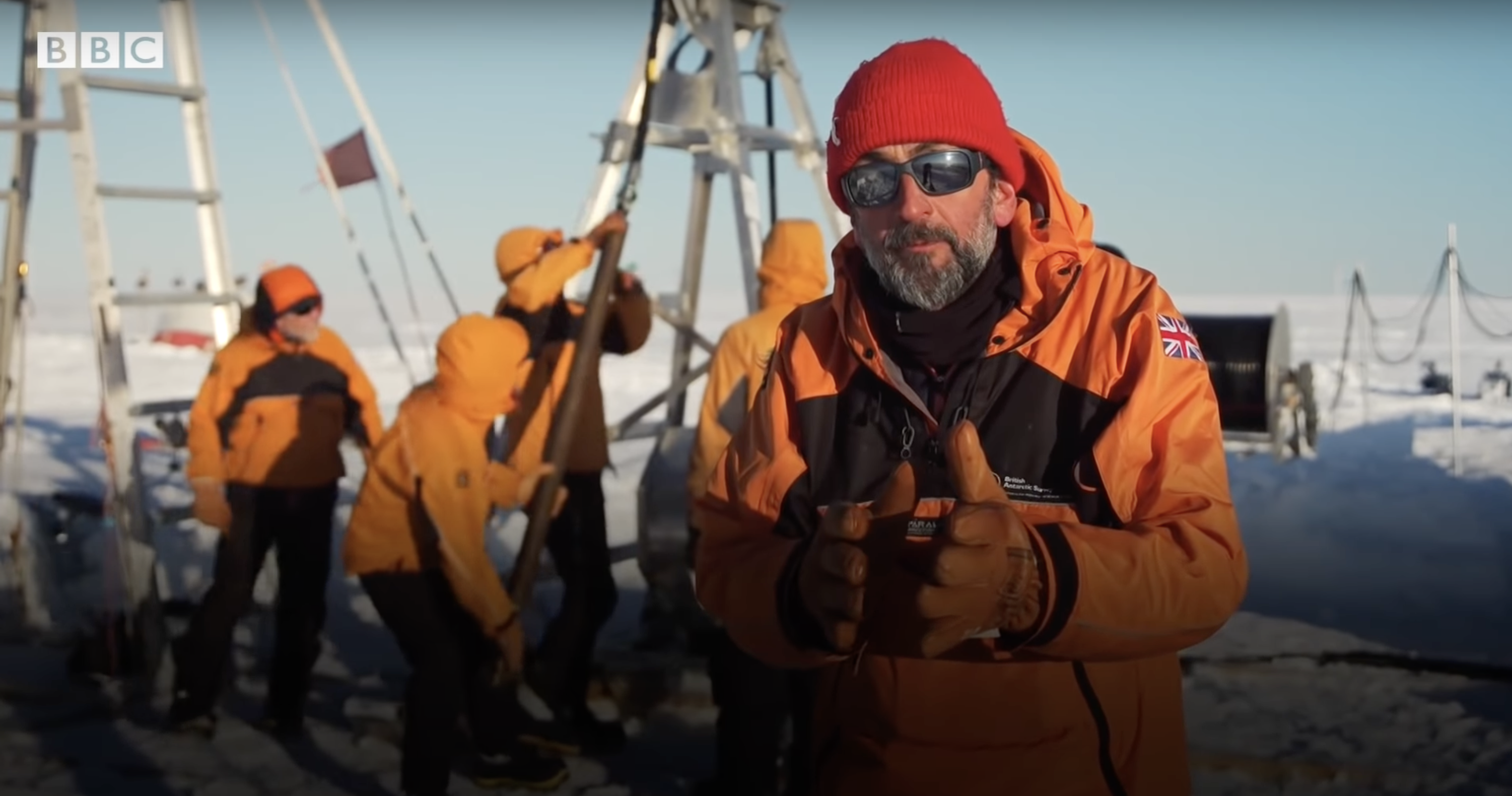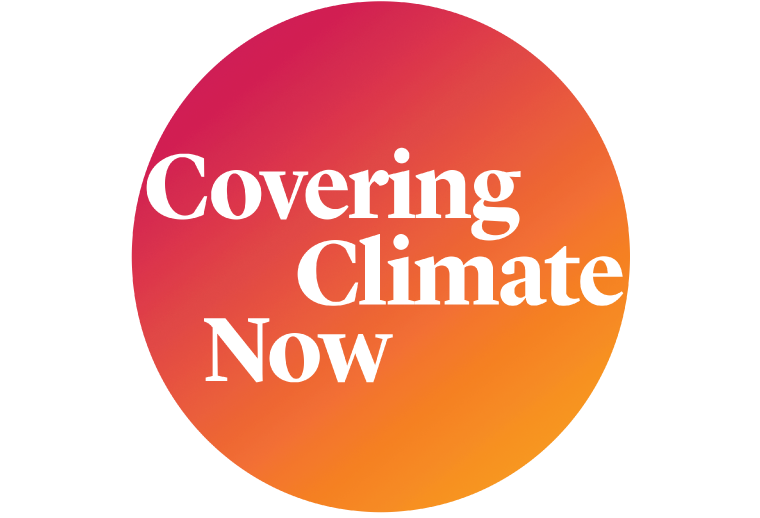Sign up for the daily CJR newsletter.
Globally, more people than ever consider climate change an urgent priority. Studies regularly show, however, that their understanding of climate change and its solutions lags behind their concern. So how can journalists do their part? Justin Rowlatt, climate editor for the BBC, has been tuned in to the climate story since making a name for himself in the mid-2000s as an “accidental green hero.” Covering Climate Now spoke recently with Rowlatt about his role at the BBC, the need for more optimism in climate storytelling, and the solutions stories that he’s found resonate most with the BBC’s enormous audience.
The conversation, with CCNow deputy director Andrew McCormick, is part of a regular series of Q&As in which CCNow speaks with journalists about their experiences on the climate beat and ideas for pushing our craft forward. Rowlatt’s comments have been edited for length and clarity. Follow Rowlatt on Twitter.
You’ve had a long and varied career at the BBC. What first brought you to the climate story?
In 2006, I had gotten a job at Newsnight, which is the BBC’s evening, must-watch current-affairs program. I’d always wanted to work in broadcast journalism, and by then I had some experience—in various roles with the BCC and Channel 4 News—but Newsnight was especially exciting to me. On my first day, I showed up imagining myself as a kind of roving correspondent, traveling the world and doing all sorts of interesting investigations.
So it was a shock when my editor, Peter Barron, sat me down and said instead, “Listen, we’ve got a very clear vision for you, Justin. For a full year, we want you and your family to do everything you can to reduce your carbon emissions.”
Now, this was back when climate change wasn’t nearly the massive, mainstream issue it is today. And I was skeptical, frankly. I didn’t like the idea of doing what sounded effectively like a news reality show. But, of course, it turned out Peter was very prescient in imagining what an engaging issue this could be for audiences. I was called the “Ethical Man”—a challenge to some in our audiences, perhaps, whereas something like “Carbon Man” would have been neutral—and the show focused mostly on my home. My wife, Bee, and I got rid of our car. We stopped flying. We went vegan for a time. Much of the show had to do with energy pricing and efficiency, and right from the start there was an agreement that the BBC wouldn’t pay for my family to do anything—because if the company had paid for us to put up solar panels, for example, it would have biased discussion about the associated costs and benefits.
The show was a hit. Today, when I look back on my career, it’s one of the moments that stands out. It forced me to think about changing my behavior in a way that I hadn’t before—and ultimately it convinced me that climate change is the biggest threat humanity faces.
Getting a grip on climate when you did—was it eerie to watch, as the years ticked by, how little attention the issue received in the press?
Having immersed myself—Bee and I were literally living the story—I was utterly persuaded about the scale of peril that climate change represents. So I was surprised when the 2008 financial crisis hit, and climate change fell rapidly down the world’s priority list, especially for governments. For the media, it seemed climate had only ever been a curiosity. I remember thinking in the years following, “Oh my God. A major disaster is coming right at us, and there’s just no interest!”
We saw a steady uptick in concern in the 2010s. But then you had this horrible tendency in the media, including the BBC, to “balance” climate science with climate deniers and skeptics. More recently, we’ve moved on from that impulse. Any sensible person knows we have a major problem. Certainly among journalists, we’ve seen a big attitude shift; at the BBC, in particular, we had an internal memo go out that said more or less, “The referee has spoken. Climate change is real, it’s anthropogenic, and it’s dangerous, and these facts are not something journalists should wrap in any sort of qualifications whatsoever.”
Talk us through the shape of the BBC’s climate team. What’s your role as climate editor, and who else across the BBC’s various media covers climate?
The BBC is a massive organization—it doesn’t really compare to any other broadcaster. We’ve got many programs, both TV and radio, that broadcast over a variety of channels, all with their own news agendas and approaches to climate. The way the BBC works, some of these programs produce their own excellent climate journalism, while others kind of hoover up climate content from other parts of the BBC that will be relevant to their audience.
The title “climate editor,” in my case, is actually a marker of journalistic seniority at the BBC, rather than implying any management responsibility. I’m the lead journalist on the climate story, but I don’t assign stories, for example, or decide what my colleagues do. In a sense, it’s my job to cover the big climate stories that are going to be a fit for our largest news broadcasts on TV and radio, which are arguably the most contested BBC real estate. So you’ll find me covering major climate news, like last November’s COP27 summit in Sharm el-Sheikh, Egypt, both filing reported segments and giving live commentary on various programs, and doing ambitious field pieces, like a trip in early 2020 to Thwaites Glacier in Antarctica. I also do big sit-down interviews with people like the UN secretary-general. And I’ll cover domestic stories, like the UK’s offshore wind industry. In any case, the intent when I’m assigned a story is to bring some weight to the subject; it’s like the BBC saying, “We consider this especially important, so here’s our climate editor doing the story.”
In addition to me, the newsroom has a handful of other climate and environment reporters. There’s a science team, too, that typically covers the climate stories that are more overtly scientific, like the release of a study. Increasingly—and very interestingly, I think—we’re seeing other bits of the newsroom wanting to take responsibility for aspects of the climate story. Our business team has been doing more green-tech reports, for example, and our politics team is getting more involved, also. That makes sense: climate change is a huge business story and a huge political story. Then, of course, we’ve got a large network of foreign correspondents, many of whom are taking on more climate stories as well.
The BBC has faced criticism recently for allegedly bowing to pressure from the UK’s political right. There was the Gary Lineker episode, for example, and the Guardian report that an episode of the new David Attenborough series had been pulled from broadcast due to fear of right-wing backlash—which the BBC denied. Have you ever seen climate coverage at the BBC toned down or softened, due to efforts to appear politically “neutral” or to avoid partisan critique?
I haven’t experienced any such pressure, no. As for the Attenborough report, the story was simply false—talk to anyone involved; the BBC never planned a sixth episode of that series. So, apart from repeating the BBC’s statement that the story wasn’t true, there’s really nothing to comment on. The trend, from my vantage point, is that the BBC is doing more and more to prioritize climate change and communicate to our audience that it’s a clear and critical dilemma.
How has the added editorial focus on climate played with audiences?
You know, although we find that people believe climate change is a very important issue, that’s not always reflected in the stories they choose to read. Like many media outlets, the BBC has seen a significant increase in news avoidance. Climate change is one of those subjects where people might say, “I just don’t read those stories, because they’re too depressing.” They see the headline and think, “Well, I already know what this story says. Why bother reading it?”
This is due in part, I think, to the media’s relentlessly negative framing of climate stories. If we want to engage people, we need to be more creative about how we tell these stories. Ideally, climate stories should leave people feeling empowered, rather than scared.
Because, in reality, there are many exciting and even optimistic aspects of this narrative. The new industrial revolution that climate change is bringing about is fascinating—both in terms of business opportunities and the many cultural and societal changes that will result. Huge industries are growing up worldwide, from wind to solar farms to battery technology. We’ve got the switch to electric vehicles and other major changes to transportation systems.
Yes, it’s our job in the media to report the facts, impartially and without bias. And there are some inescapable and very grim truths about the trajectory the world is on, in terms of our emissions, which continue to grow. But humanity has a say in this problem.
What specifically can we do to help audiences better engage?
For a mass audience, I think we’ve got to assume very little knowledge about climate change. Our audience metrics bear this out: People understand that climate change is a problem, but how it works—the role of carbon dioxide and other greenhouse gases—is not as well understood, never mind a concept like “net zero.” So there’s still a lot of explaining that needs to be done, even despite climate change’s large public profile. Obviously, there isn’t room in stories for the full explanation, but we should at least have a clear and concise sentence here and there that helps ensure we don’t lose our audience. Somebody who doesn’t know anything about climate change should be able to read or listen to a story and feel that they understand the scientific concepts we’re introducing.
Another thing is that, undoubtedly, people like solutions stories. The tech stories by our business team are always very well read. Engineering stories also do well—we’re going to need some big engineering to get through this crisis, and I think people are curious to learn more about these solutions that they’ve heard of but don’t know much about. We’ve done features, for example, where we go out on boats for an up-close look at offshore wind turbines; the footage is really dramatic, and we find it works quite well for our audience.
Recently, we had a story online that you’d think might have been very dry, about a new method for capturing CO2 from the air using resins, that got some 800,000 hits just in the first several hours it was up. It’s one of the most successful climate stories we’ve had so far this year. And notably, the headline conveyed a note of optimism: “New idea for sucking up CO2 from air shows promise.” As journalists, we can be truthful about climate change without giving audiences the sense that we’re doomed—we can communicate that there’s hope.
Has America ever needed a media defender more than now? Help us by joining CJR today.









